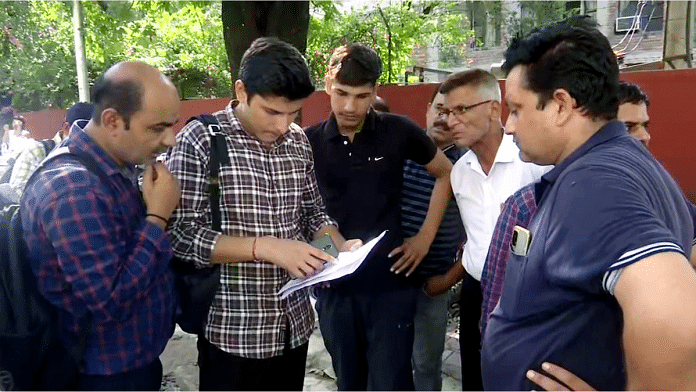JNU Vice-Chancellor Professor Shantishree Dhulipudi Pandit recently expressed her trepidation with the objective format of the Common University Entrance Test (CUET) for the admission in postgraduate (PG) courses, saying that admissions to master’s programmes require qualitative testing and should not be conducted through multiple choice questions (MCQs).
Herein, I dissect how the objective format of examination makes it unduly onerous, and its repercussions on academia. I was also one of the candidates amongst 39,028 who appeared for Political Science CUET 2022 for the admission in the PG course in September.
My trials and tribulations with the CUET started soon after my graduation when I enrolled myself in an online coaching portal selling the ‘JNU Dream’. I was initially aghast at the tutors asking pupils to do ‘surface-level’ revision’of the official syllabus. But as I gradually plunged into the preparation, I realised that to be the master of MCQs I needed to shed the baggage of the habit of writing critical answers, and embrace factual wisdom. Memorising articles of the Indian Constitution containing the general procedure to be followed in Parliament became more important than scrutinising the underlying factors disrupting debates in both the Houses of Parliament. The passionate classroom discussion on Dr. M. P. Singh’s research article ‘The Decline of the Indian Parliament’ in the first year of undergraduation was left redundant.
Also read: MERITE: Modi govt’s 5 year, 20-point action plan to improve engineering education
The trick is to be proficient in time management and eliminate the most inappropriate options with confidence in a given question. Thus begins the blind race to solve previous year question papers wherein undergraduates end up solving University Grants Commission (UGC) National Eligibility Test (NET) papers for cracking a few questions which the National Testing Agency (NTA) might arbitrarily ask to make the exam seemingly ‘competitive’ for admission in premier institutions with limited number of seats.
Agony exacerbates with the onset of rote learning of the never- heard- before names of the scholars and their books, the publication year of those books, and in some cases even the random statements given by these scholars on concepts like liberty, equality, justice, etcetera. Testing whether a candidate knows academically important works from her coursework is never a bad idea until these scholars are those taught at the undergraduate level. Otherwise, how could one expect a bachelor’s student to know- a question asked in this year’s test- that James Manor, which is taught at master’s level, explained party systems in India in terms of democratisation and decay?
The UGC’s infatuation with fact-centric questions for the sake of a level playing field doesn’t let NTA ask elucidatory questions on Plato and Marx. Instead, believing in coexistence of contradictions, zealot technocrats running the agency make students practise dialectics through the Socratic method of continual probing questions by students in challenge to its answer key.
Both Indian and western political thinkers, their theories of social contract and state besides international relations are all relegated to petty questions like who wrote Leviathan- which even a layman can answer after reading exam guides. As an aspiring academician myself, I am pained to write that students need to abandon their “faculty of thinking and the creative use of language to explain and interpret complex phenomena” for the admission in PG courses.
The domino effect of MCQ format of CUET would propel a chain reaction on the pedagogic imagination of academicians. The lack of incentive for stakeholders shall wipe out whatever little is left in the name of nuanced debates in public universities. Who needs to deliver a lecture on the cultural aspect of the expansionist policies of China when one can just know the fact that Samuel Huntington wrote The Clash of Civilizations (1996) from the ‘neo-sunrise’ industry of YouTube channels offering ‘strategies’ to successfully crack these competitive exams.
In an already research starved academic environment of liberal arts, the computer based testing will sound the death knell of higher education institutions in the absence of qualitative testing. Therefore, there ought to be a method to examine analytical abilities of social science students to test whether they are able to implement theoretical knowledge gathered through their education into the practical workings of the society
The author is a student at Kirrori Mal College, University of Delhi. Views are personal



